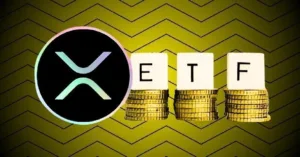The intrinsic value of an asset depicts the asset’s actual worth based on a complex financial calculation rather than its current price.
In the financial world, assets have a current value and an intrinsic value. The current value represents the price of an asset at a given moment. The intrinsic value of an asset is not tied to its recent performance but rather a complex combination of factors that might affect the long-term valuation.
In traditional financial analysis, the intrinsic value of an asset is tightly connected to the underlying valuation of the company issuing the asset. The underlying value of a company is determined by an array of factors, including the cash flow it reports and its projected earnings. The intrinsic value of a company’s stock is therefore also affected by such factors.
The intrinsic value of an asset is a rather abstract number because of the multitude of factors that can play a role in its formation. However, financial analysts and stock brokers have complex algorithms that help them determine intrinsic values. This is one of the most important figures that help investors assess whether they want to purchase an asset or not.



